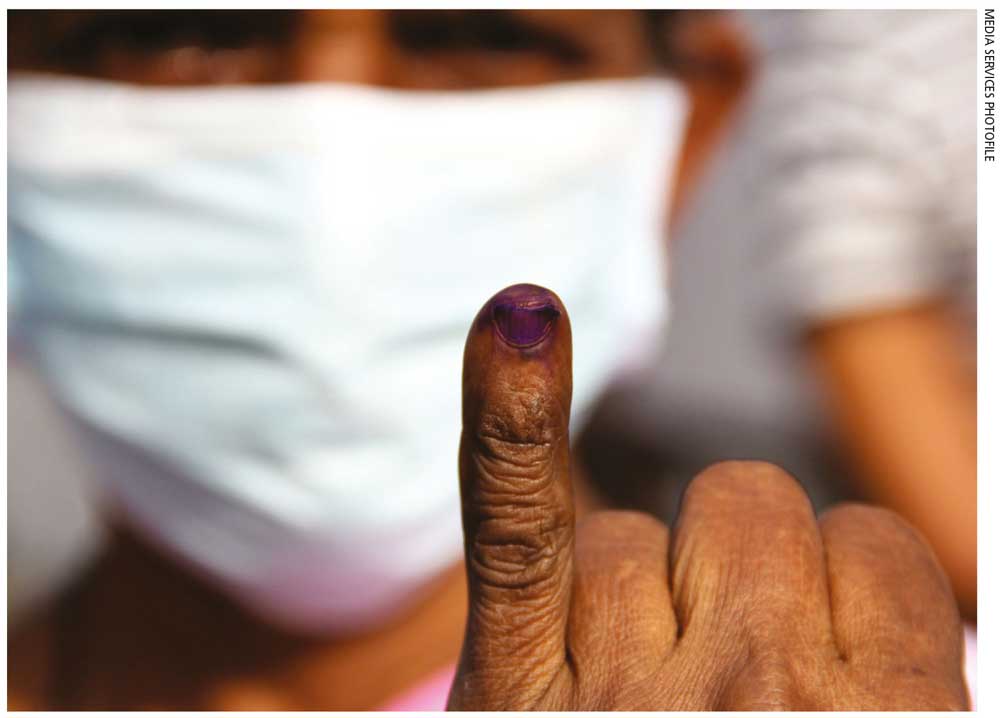

THE JURY IS OUT ON ELECTIONS
A case for the courts rather than the streets to rule on – Dr. Jehan Perera
Sri Lanka’s failure to obtain the second tranche of IMF support is a warning regarding the precarious condition of the economy. The International Monetary Fund says the nation’s economic recovery is still not assured and the government hasn’t met the economic targets set for it, particularly to reduce the budget deficit due to a potential shortfall in state revenue.
Its reluctance to grant the second tranche of US$ 330 million at this time will erode the confidence of prospective investors. The IMF notes that the second tranche under its lending programme will only be released after it reaches a staff level agreement – and there is no fixed timeline on when that will take place.
And the failure of the government to fulfil many of the agency’s transparency requirements such as posting its contracts and procurements on the website, and explaining its rationale for tax holidays and beneficiaries, have contributed to the loss of confidence in the administration’s commitment to the economic reform process.
In view of the seriousness of the economic challenges to the country and its people, there’s a need for the government to address issues of governance in consultation with the opposition to ensure bipartisan consensus on the way forward.
Unless remedial steps are taken, the government’s current engagement with the IMF may be difficult to sustain. This is not only because the administration is failing to meet the targets set by the lender but also due to a lack of confidence about the programme among the general populace.
A public opinion poll conducted by Verité Research reveals that around 45 percent of Sri Lankans believe the IMF programme will make things worse for the economy in the future. Only 28 percent of the surveyed population believe the ongoing programme with the agency will make things better for the economy in the future.
Mounting difficulties faced by people in coping with their economic circumstances can lead to protests and agitation campaigns. And the logic of competitive electoral politics can also come into play with different political parties making their own promises to alleviate the economic hardships on the people – even at the cost of the economic reform programme agreed upon with the International Monetary Fund.
In recent times, members of the government have been making noises that safeguarding the IMF programme may require a moratorium on elections. The government has shown itself willing to take this route, ostensibly for the sake of the national economy.
Even before the agreement with the IMF was reached, it had postponed the local government elections set for March, citing the need to focus on economic recovery rather than hold elections.
Recently, the Chairman of the United National Party (UNP) Wajira Abeywardena said that the government would not be able to meet the economic needs of the people if funds were allocated through the 2024 budget for the presidential election that’s due in less than 12 months.
Despite his utterances however, it has been reported that the government has allocated Rs. 11 billion in the provisional budget for next year for the presidential election due in September. This is a positive indication that it intends to hold an election.
Free and fair elections being held when they’re due is a core concept of a functioning democracy, which was called into question earlier this year when the local government elections were postponed.
And while there’s an allocation of 11 billion rupees for a presidential election in the provisional budget for next year, there remain questions regarding the government’s plans for the future. The provisional budget for 2024 is Rs. 3,860 billion, of which 11 billion rupees seems to be a small fraction.
Likewise, the budget for this year was Rs. 3,657 billion and the 10 billion rupees that was needed for the local government elections was only a small fraction of it. But these elections were not held and the administration argued that this money would be better spent on development than on elections.
The issue of postponement of elections due to the economic crisis may have to be faced once again when the presidential election is due. And the courts would be the better place to contest undemocratic actions – rather than the streets.
This content is available for subscribers only.





